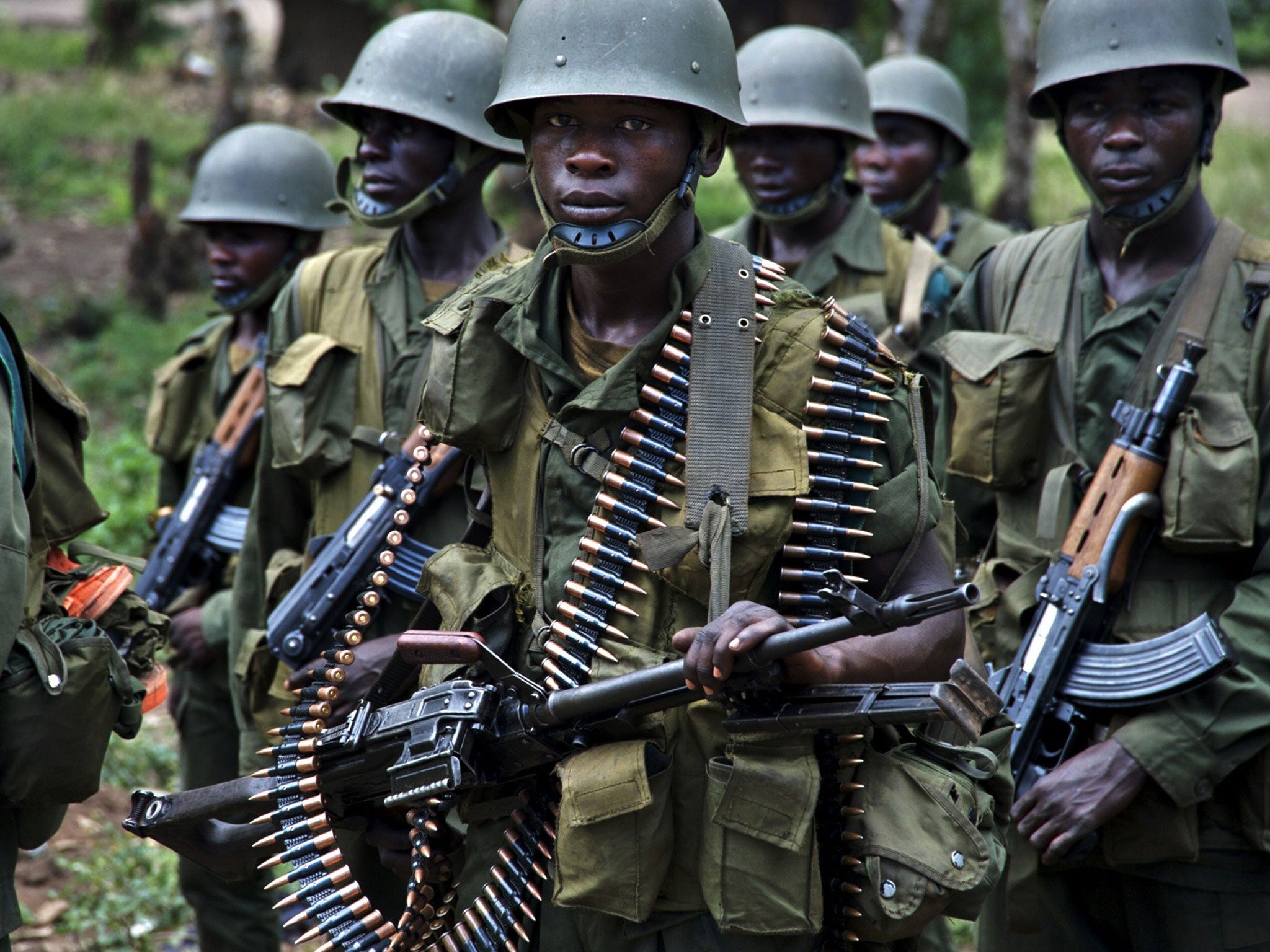UN wants drones over Congo to keep the peace
African mission plea for more firepower after being humiliated by rebel advance in DRC

Your support helps us to tell the story
From reproductive rights to climate change to Big Tech, The Independent is on the ground when the story is developing. Whether it's investigating the financials of Elon Musk's pro-Trump PAC or producing our latest documentary, 'The A Word', which shines a light on the American women fighting for reproductive rights, we know how important it is to parse out the facts from the messaging.
At such a critical moment in US history, we need reporters on the ground. Your donation allows us to keep sending journalists to speak to both sides of the story.
The Independent is trusted by Americans across the entire political spectrum. And unlike many other quality news outlets, we choose not to lock Americans out of our reporting and analysis with paywalls. We believe quality journalism should be available to everyone, paid for by those who can afford it.
Your support makes all the difference.The United Nations is considering using unmanned drones in its peacekeeping operations for the first time, as it seeks to strengthen its forces in eastern Congo.
The UN Secretary General, Ban Ki-Moon, is pushing for the deployment of drones in a diplomatic battle in New York that could have far-reaching implications for the future of international peacekeeping.
The proposal to use the unarmed intelligence-gathering drones has the backing of council members the US, UK and France but faces opposition from China and Russia. Rwanda, which holds one of the council's rotating seats, and is accused of meddling in its larger neighbour, is also determined to block the move.
Monusco, the UN's mission in the Democratic Republic of Congo and the largest of its kind, was humiliated last year after first vowing to prevent armed rebels from taking the regional capital before standing aside and allowing them to march into Goma.
The M23 rebels routed the Congolese national army, despite its support from UN forces. Rwanda allegedly lent direct military support to the rebel offensive, according to a report by a UN group of experts.
Congo analyst Jason Stearns said drones could be a "technical fix" to one of the key problems: "monitoring meddling by neighbouring countries and gathering information about security developments in the vast interior of the country."
The UN's peacekeeping head, Herve Ladsous, has been pushing for the organisation's creaking and poorly supplied missions to be modernised and has threatened to name and shame under-performing troop contingents. This week, he told the Security Council that the Congo mission needed more helicopters, night-vision equipment, river units and drones.
Rwanda has opposed the move, saying it does not want Africa to become a laboratory for foreign intelligence devices. Olivier Nduhungirehe, a Rwandan diplomat at the UN, said his country would oppose the use of drones, calling for further assessment of how they would be used: "We express reservations about the introduction of UAVs (unmanned aerial vehicles) to peacekeeping operations when the issues that go along with it are still being discussed," he told the state-owned media in Rwanda.
The government in Kigali has repeatedly denied allegations that it commands the M23 rebels and rejected evidence from UN experts. The use of UAVs in Congo's remote border areas would settle the argument and make it impossible for large-scale supply operations to be kept secret.
The UN, which has 17,000 troops and 1,400 police deployed in sub-Saharan Africa's largest country at an annual cost of $1.5bn, has been considering drones since 2009, when it asked the US for the technology and was refused. The cost of UAVs has fallen dramatically in the past five years and the Pentagon has lost its monopoly on the technology with countries from Belgium to Pakistan manufacturing them.
The first UN drone deployment faces significant opposition from veto-wielding China and Russia who have concerns over the security of the intelligence gathered.
Experts have warned that while drones might be useful they would not be a panacea for Monusco or similar operations. "They could distract from the real issues at stake: the dereliction of the Congolese state, foreign military meddling, and the increased use of armed groups by all actors to bolster their power," said Mr Stearns.
Join our commenting forum
Join thought-provoking conversations, follow other Independent readers and see their replies
Comments